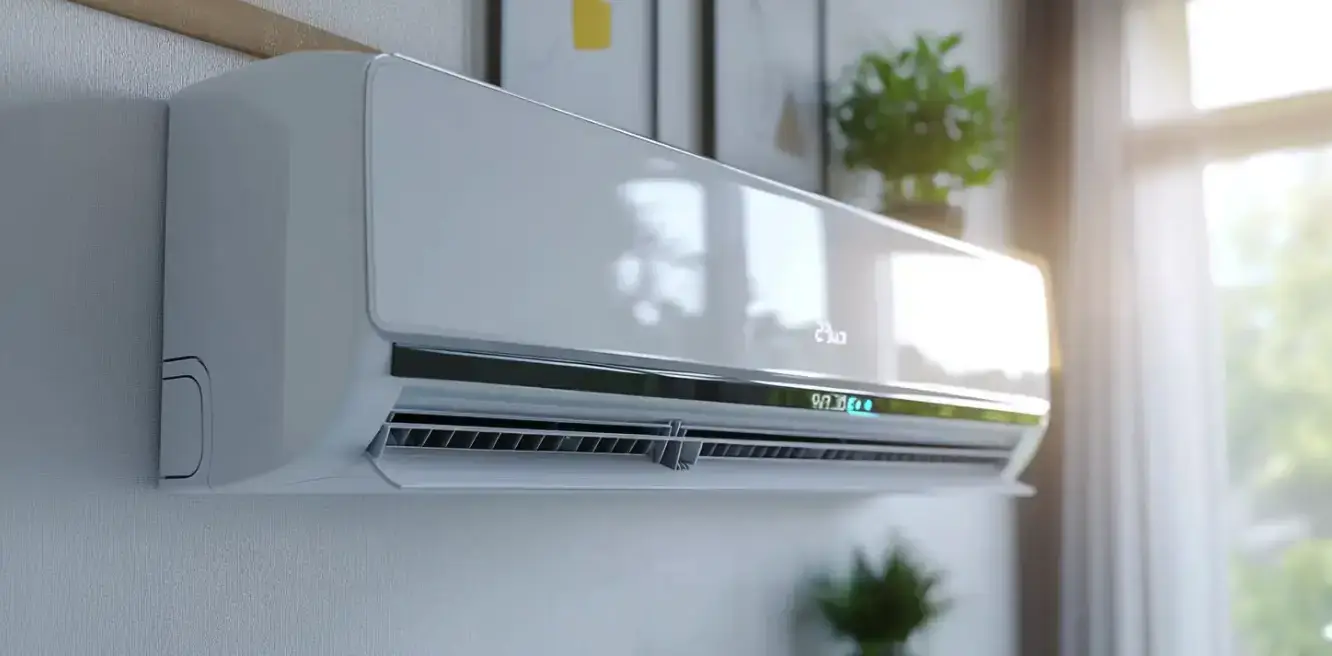8 Easy Ways to Boost Your Air Conditioner’s Efficiency

Contact COIT for a professional cleaning!
Keeping your home cool in the summer shouldn’t mean watching your energy bills skyrocket!
With a few smart tips and tricks, you can help your air conditioning system work more efficiently, saving money and reducing wear and tear on your unit.
From simple DIY tips to professional maintenance, we’ll show you how to get the most out of your AC while keeping your home comfortable.
1. Clean or Replace Air Filters Regularly
When was the last time you checked your AC filters?
These unsung heroes of your HVAC system work overtime to trap dust, pollen, and debris, keeping the air in your home clean. But over time, they get clogged, forcing your system to work harder. A dirty filter can increase your energy consumption by up to 15%!
Here’s what we recommend:
- Check your filters monthly, especially during peak summer use.
- Replace disposable filters every 1–3 months or as needed. If you’re using reusable filters, clean them according to the manufacturer’s instructions.
- Consider upgrading to high-efficiency filters (like those with a MERV rating of 8–13) for better air quality and system performance.
Pro tip: Set a reminder on your phone or calendar to check your filters regularly. It’s a small task that makes a big difference!
2. Adjust Your Thermostat Strategically
Your thermostat is the command center of your AC system, and setting it wisely can have a huge impact on efficiency.
The sweet spot for most homes in the summer is between 75 and 78°F. Every degree higher you set it can save about 3% on cooling costs.
If you’re still using a manual thermostat, it might be time for an upgrade. A programmable thermostat lets you set cooling schedules based on when you’re home or asleep.
For even more control, consider a smart thermostat that adjusts automatically based on your preferences and learns your habits.
When placing your thermostat, avoid areas that might skew its readings:
- Keep it away from direct sunlight, lamps, or heat-generating appliances.
- Install it on an interior wall, ideally in a central location.
By giving your thermostat the best environment to do its job, you’ll improve your AC system’s efficiency without lifting a finger.
3. Keep Your Outdoor Unit Clean and Cool
Your outdoor unit (also called the condenser) plays a critical role in cooling your home. If it’s surrounded by dirt, debris, or scorching sunlight, it has to work harder to cool the air.
Here’s how you can help:
- Clear debris: Regularly check for leaves, grass clippings, or dirt around the unit. A quick rinse with a garden hose (while the unit is off) can help keep the fins clean.
- Provide shade: A shaded condenser is up to 10% more efficient. Plant shrubs or trees strategically to block the sun, but keep them at least 2–3 feet away from the unit for proper airflow.
- Inspect the area: Ensure there’s no clutter around the unit that could restrict airflow or cause overheating.
Regular attention to your condenser not only improves efficiency but also extends the life of your system.
4. Seal Your Home Against Air Leaks
Imagine cranking up your AC only to have the cool air escape through gaps in your doors or windows. That’s what happens if your home isn’t properly sealed! Even small leaks can significantly reduce your AC’s efficiency.
Here’s how to stop leaks in their tracks:
- Check doors and windows for drafts. If you can see light peeking through or feel a breeze, it’s time to take action.
- Use weatherstripping or door sweeps to seal gaps around doors.
- Apply caulk around windows and any cracks in your walls or foundation.
And don’t forget to inspect less obvious areas like attic hatches, outlets, and baseboards— a little effort upfront can save you big on energy costs and keep your home consistently cool.
5. Use Ceiling Fans to Circulate Cool Air
Ceiling fans are an easy way to improve your AC’s performance.
While they don’t lower the temperature, they help circulate cool air, making rooms feel up to 4 degrees cooler. This allows you to set your thermostat a bit higher without sacrificing comfort.
Make sure your fan blades are rotating counterclockwise in the summer to push air downward and remember to turn them off when you leave the room—fans cool people, not spaces.
6. Schedule Annual Professional Maintenance
To maximize your AC’s efficiency, professional maintenance is non-negotiable.
A certified technician can catch issues early, keeping your system running smoothly and preventing costly breakdowns.
Here’s what a professional tune-up typically includes:
- Checking refrigerant levels and recharging if needed.
- Inspecting and cleaning coils, fans, and other components.
- Tightening electrical connections and lubricating moving parts.
- Testing system performance to ensure everything’s running efficiently.
At COIT, we also offer professional air duct cleaning services.
Dust, allergens, and debris can build up in your ducts over time, reducing airflow and making your AC work harder. Clean ducts improve efficiency and create a healthier indoor environment for your family.
Contact COIT for cleaner air ducts today.
7. Upgrade to a High-Efficiency System
If your AC system is more than 10–15 years old, it might be time for an upgrade.
Modern systems are far more energy-efficient, thanks to advancements in technology. Look for models with a high SEER (Seasonal Energy Efficiency Ratio) rating—15 or higher is ideal.
While the upfront cost of a new system can be significant, the long-term savings in energy bills and repair costs make it a smart investment.
8. Insulate Your Home for Year-Round Comfort
Proper insulation isn’t just for winter; it’s a key factor in keeping your home cool in the summer too!
Insulation helps keep cool air inside and hot air out, reducing the strain on your AC system.
Focus on areas like your attic, walls, and crawl spaces. If you’re unsure where to start, consider hiring a professional energy auditor—they can identify weak spots and recommend the best insulation solutions for your home.
Answering Your Top AC Efficiency Questions
To wrap things up, let’s tackle some common questions about improving AC efficiency.
Q: How do I make my AC more efficient?
A: Start with simple steps like cleaning your filters, sealing air leaks, and setting your thermostat to 75–78°F. For maximum efficiency, schedule annual maintenance and consider upgrading to a high-efficiency system.
Q: Is 72 a good temperature for air conditioning?
A: While 72°F is a comfortable temperature for air conditioning, it’s not the most energy-efficient setting. Aim for 75–78°F in the summer to save energy without sacrificing comfort.
Q: How can we improve the efficiency of cooling systems?
A: Regular maintenance, duct cleaning, and proper insulation are key. You can also boost efficiency by shading your outdoor unit and using ceiling fans to circulate air!
Q: How can I improve my AC performance?
A: Along with the tips above, ensure your outdoor unit is clean and free of debris. Upgrade to a smart thermostat to maintain consistent cooling without overworking your system.
Final Thoughts
By following these tips, you’ll not only keep your home cool and comfortable but also extend the life of your air conditioning system.
Whether it’s a quick DIY fix or a professional tune-up, every step you take helps improve efficiency and lower your energy bills.
Need help keeping your AC in top shape?
At COIT, we specialize in HVAC maintenance and air duct cleaning to keep your system running like new.
Contact us today to schedule a service and enjoy a cooler, more efficient home!



